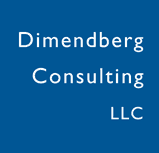
Www.dimendberg.com
![]()
This workshop introduces the principles of applying for grants and fellowships in the arts, humanities, and qualitative social sciences in disciplines including anthropology,
architecture, art history, cultural sociology, film and media studies, history, literature, philosophy, urban studies, and visual art practice. By the final session, participants will have produced a completed application ready for submission to their chosen funding agency. Depending on the needs of an institution, I can teach the workshop at one of three levels. Each is geared to scholars at different stages of their careers.
Level One is intended for undergraduates applying for Luce, Marshall, Fulbright, Rhodes, and other scholarships and work/study programs abroad to commence after graduation. It includes a discussion of writing a graduate school application essay and a curriculum vitae.
Level Two is designed for graduate students who have advanced to candidacy and are seeking fellowships and travel grants from the SSRC, AAUW, CAA, SAH, the Ford Foundation, and other sources to support the research and writing of their dissertations.
Level Three is oriented toward recently hired faculty in search of external funding from sources including the ACLS, SSRC, humanities centers, and art residencies to support their research and practice. It stresses the importance of applying for both internal and external support and utilizing both types of funding to complete projects.
Ideally, the workshop is offered in four sessions in two time blocks, beginning in the spring and concluding in the fall. This allows participants to write and revise their proposals over the summer and obtain comments and reactions from a partner in the workshop and at least two mentors before presenting their project statements to the group.
Prior to the workshop, I confer with faculty and administrators to review patterns of grants and fellowships received by students and faculty on their campus. By assessing strengths and areas for improvement, I can better formulate objectives for the workshop and devise strategies to mesh with existing initiatives and programs. Each workshop is designed so that participants applying for fellowships and grants receive the maximum assistance from me and from their institution to enable them to write successful applications.
The first session introduces the differences between grants and fellowships, the types of funding entities, internal versus extramural support, principles of cost sharing (where applicable), the timetable of the grant-making cycle, the major sources of information about grants, and the principal grants and fellowships in the humanities and qualitative social sciences. As a first assignment, participants match their own research with two grants and two fellowships. Rather than simply study the guidelines of funding agencies, they conduct a review of recent grant and fellowship recipients and identify those with projects similar to their own, both as a resource and as evidence of a plausible match. A group meal after the first session provides an opportunity for members of the workshop to become acquainted with each other in an informal setting.
Session two addresses the elements of grant and fellowship applications: the abstract, project statement, research timetable, and bibliography. I emphasize the importance of clearly presenting a research problem, a methodology, an investigation to be conducted, and a schedule for completion of the project. Several short readings on these topics as well as the process of generating ideas for writing project statements are discussed. I place special attention on the process of selecting referees and requesting letters.
The second assignment involves completing an application for a grant or fellowship and discussing the project statement with one partner in the group and two faculty mentors. I remain in close contact with all participants as they complete their applications, which they then email to me for comment. Prior to the third session, I meet individually with participants to fine tune their applications and answer questions.
In the third session, applications are discussed in a group setting. Each participant is asked to describe how he or she has modified his or her application since the first draft, and partners are asked to offer constructive criticism. Any remaining questions or uncertainties are discussed as a group and in additional meetings with me, as needed. By this time, participants will have produced a polished grant application at least four to six weeks in advance of fall deadlines, thus allowing their referees adequate time to write letters of support.
The fourth and final session covers the obligations that come with receiving a grant or fellowship, as well as how to establish a track record and credibility with funding agencies, and how to parlay smaller grants and fellowships into larger ones. We also discuss how to learn from a rejected application. After completing the workshop, participants will be required to submit anonymous evaluations, which I then discuss with faculty and administrators before submitting a final report on the workshop. The success rate of receiving grants and fellowships will be tracked over the following year to assist in future planning.